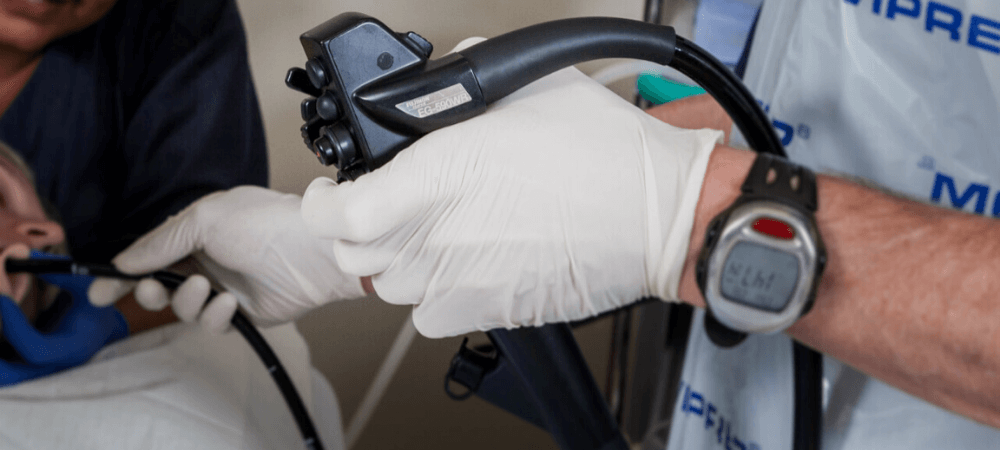Colon cancer, excluding skin cancers, is the third most common cancer among men.
While most colon cancers develop after 50, studies show that about 30% of black South African men develop colon cancer between the ages of 30 and 40.
The high percentage of South African males and females that develop colon cancer makes it important for people with a family history of colon cancer to undergo a colonoscopy.
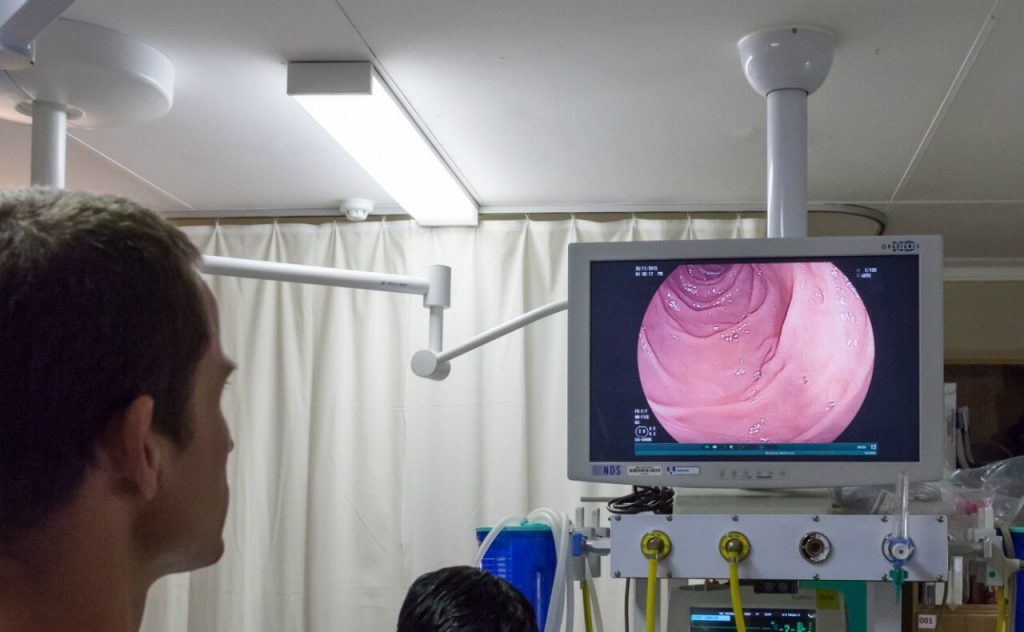
What is a Colonoscopy?
A Colonoscopy is one of the best and effective ways to screen for colorectal cancer. During this procedure, a doctor injects aenesthesia into the patient to make them drowsy and relaxed.
They will then be asked to lie on their side. The doctor will then use a colonoscope, a flexible tubular instrument that provides an image of the colon’s lining.
It is inserted through the rectum and advanced to the other end of the large intestine.

It may sound invasive, but the procedure is completely painless. At most, the patient will only experience mild cramping that could be reduced by taking slow and even breaths during the process.
During the colonoscopy, the doctor will check for anything abnormal in the patient’s colon. This includes tissue growths that can be removed for analysis.
How Long do Colonoscopies Last?
The entire procedure only takes between 20 to 30 minutes. After this, the patient will stay in the recovery room for another 30 minutes to rest.
If the patient opted for sedation, it also only takes 30 minutes to an hour to wake up from it after the procedure.
A colonoscopy is a procedure where a long tubular instrument called a colonoscope is inserted through the rectum so that the doctor can observe your large intestine.
When Can You Get the Results for a Colonoscopy?
If there are no abnormalities found during the procedure, the doctor will inform the patient that everything was normal.
However, if they found any abnormalities and removed any tissue samples, the results of the analysis can take up to three weeks.
When Do You Need a Colonoscopy?
It really depends on your doctor. However, if you have a history of colon cancer in the family, it’s best to have it done.
Research shows that the average risk of developing this specific cancer is around the age of fifty. Other colon cancer risk factors are shown in this graphic:
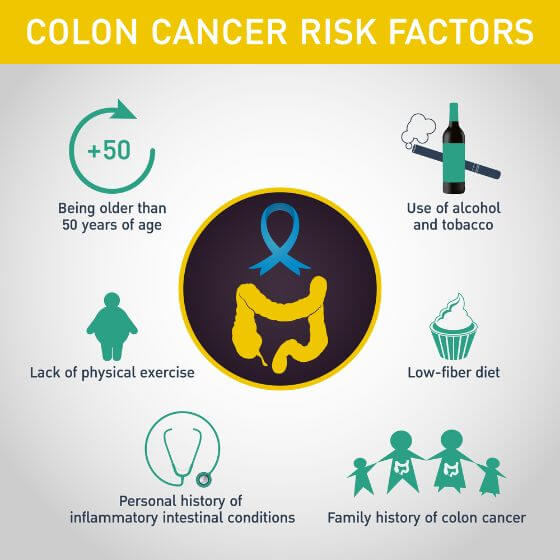
If results come back normal, it is advised to have a follow-up colonoscopy every 10 years.
While colonoscopy remains to be the best way to screen for colorectal cancer, it can be utilized to detect various other abnormalities.
Colonoscopies can also detect inflammatory bowel diseases, Crohn’s, and ulcerative colitis.
Detecting these diseases early decreases extensive damage where it could be avoided, including scarring and bleeding in the colon, and pain and intestinal blockages.
Here are several symptoms typically associated with colorectal cancer:
- Abdominal pains
- Bloating
- Chronic fatigue
- Blood in stools
- Weight loss
- Change in bowel habits
If you are suffering from any of the symptoms above for an extended period of time, it’s best to visit a doctor and schedule a colonoscopy.
How to Find the Best Doctor for Colonoscopy in Cape Town
More and more private practices are opening up all over Cape Town. This is a good thing because it gives people more options to choose from.
The tricky part, however, is knowing how to choose a doctor for your colonoscopy. Each doctor has his/her own expertise, communication style, and set of skills that may or may not suit you.
It’s important to choose the right doctor because it makes all the difference in whether you will develop colon cancer or die from it, a study has shown.
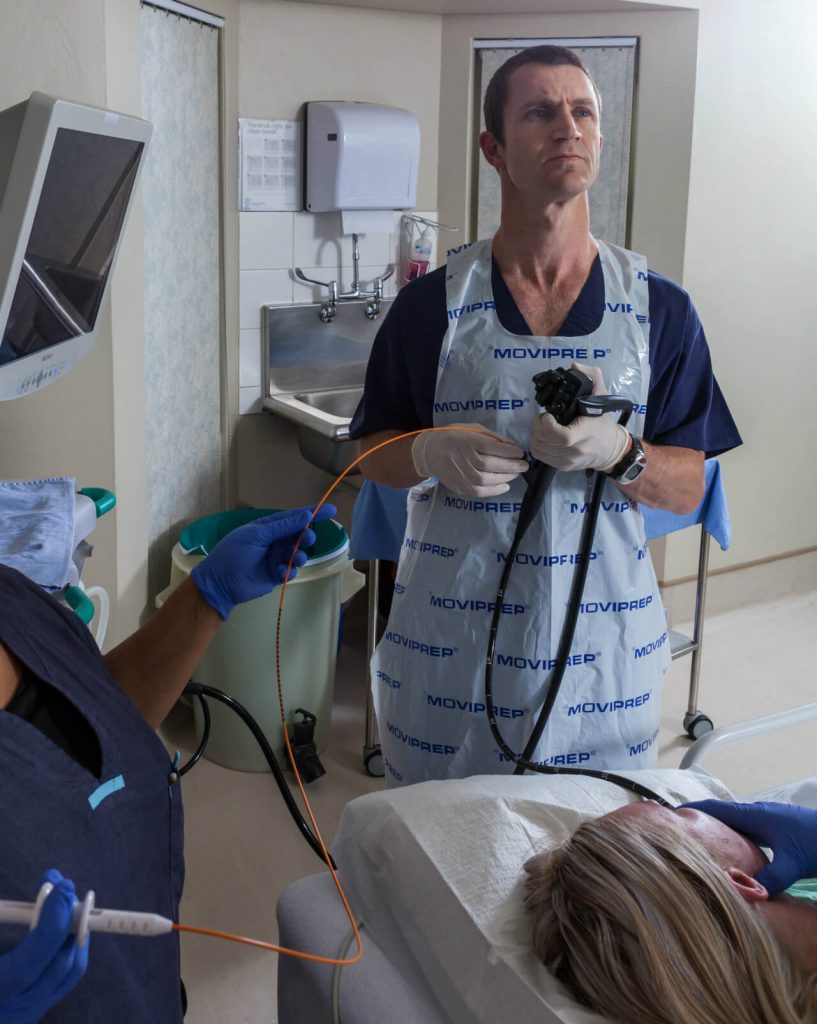
To help you find the most suitable colonoscopy doctor in Cape Town, here are 4 useful tips:
1. Make Sure your Doctor is a Gastroenterologist.
A gastroenterologist specializes in gastrointestinal diseases. They spend all their time studying gastrointestinal diseases and the latest gastrointestinal treatment procedures.
Non-gastroenterologists can also perform a colonoscopy, but keep in mind that they are five times more likely to miss colorectal cancer during colonoscopy than a gastroenterologist.
To make sure a doctor is a certified gastroenterologist in Cape Town, you can do a background and credentials check.
The most upfront way is to ask the doctor or the staff to provide proof of the doctor’s license, board certification, and even proof that the doctor went to a medical school.
Many private practices in Cape Town hang their credentials and certifications somewhere in their office so it won’t be that hard.
Of course, you can skip this part if you or a friend has known the doctor for many years and if the doctor has built a respectable reputation in the community.
2. Find out the Doctor’s Experience in Performing Colonoscopies.
The more colonoscopies a doctor has done, the more he/she will be skilled in spotting polyps or other abnormalities.
Another important thing to consider is the number of perforations a doctor has had. The perforation rate is the rate to which their colonoscopy has caused a hole in the colon.
Obviously, this is not good, so the rate you should look for is below 1 in 500 examinations. Many expert gastroenterologists in Cape Town even have rates of perforation below 1 in 1000.
3. Ask About the Doctor’s Polyp Detection Rate.
Polyps are growths in the colon that can turn into cancer.
A doctor’s polyp detection rate looks at the percentage of average-risk patients ages 50 or older whom the doctor has found to have at least polyp during their colonoscopy.
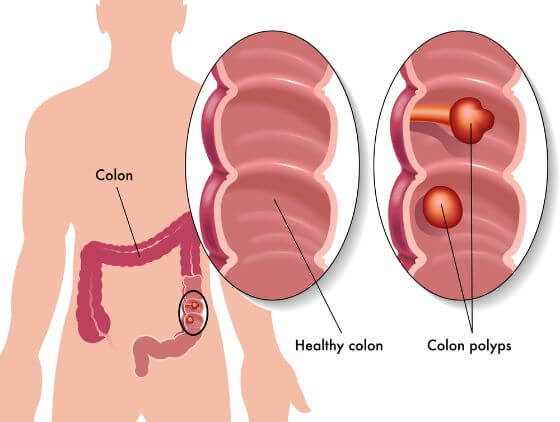
According to professional medical societies, 25 percent is a good benchmark. Of course, the higher the rate is, the greater the chance of preventing cancers.
4. Ask How Often Your Doctor Reaches the Start of Large Intestines.
If a doctor reaches the start of the large intestine during the colonoscopy, the chance of finding polyps located in the cecum (the pouch where your large and small intestines meet) is increased.
Experienced Gastroenterologists reach the beginning of the large intestine in more than 95% of cases.
This is a good benchmark and should indicate that your doctor is highly skilled in colonoscopy.
What are the Possible Risks, Complications, and Alternatives to a Colonoscopy?
Complications that might arise from a colonoscopy are rare and usually minor when performed by a trained doctor or physician.
These complications usually stem from the removal of tissue or growth inside the colon.
Bleeding may occur at the site but it’s minor and self-limited and can be handled through the colonoscope.
Another rare complication is perforation through the colonic wall. These tears often do not require surgery.
Other complications include reactions to sedatives used.
This is why it’s important to inform your doctor if you have any allergies from specific medications and why it’s also important to inform them if you’re under any other drugs, just in case they react negatively with the sedative.
Overall, the incidence of these complications together is less than 1%.
However, if any other signs of complications arise, you may contact your doctor or go to the emergency room.
Do this in cases of severe abdominal pain, rectal bleeding, fever, and chills.
An alternative to a colonoscopy is quite limited. There’s the barium enema, but it’s less accurate and performed with X-rays.
It misses a lot of the abnormalities that colonoscopy can easily find and remove.
There’s also the flexible sigmoidoscopy, however, the colonoscope used in this procedure is much shorter, thus, very limited.

Undergoing Colonoscopy in Cape Town
They say prevention is better than cure, and this is the primary reason why you should consider undergoing colonoscopy by your trusted Gastroenterologist in Cape Town.
Colonoscopy has saved millions of lives around the world through early detection of colon cancer and other medical conditions including ulcerative colitis.
Although it may seem invasive, the procedure is painless, quick, and rarely involves side effects.
If you’re ready to undergo colonoscopy, the first and very crucial step is to find a trusted gastroenterologist in Cape Town with the credentials, track record, and skills needed to conduct a successful colonoscopy.
DISCLAIMER: PLEASE READ CAREFULLY
The information on this website is to provide general guidance. In no way does any of the information provided reflect definitive medical advice and self-diagnoses should not be made based on information obtained online. It is important to consult a Gastroenterologist or medical doctor regarding ANY and ALL symptoms or signs including, but not limited to: abdominal pain, haemorrhoids or anal / rectal bleeding as it may a sign of a serious illness or condition. A thorough consultation and examination should ALWAYS be performed for an accurate diagnosis and treatment plan. Be sure to call a physician or call our office today and schedule a consultation.
© Dr. Eduan Deetlefs, Registered Gastroenterologist, GI Doc Cape Town
Our website information is not intended or implied to be a substitute for professional medical advice, diagnosis or treatment. Please consult a doctor about your specific condition. Only a trained physician can determine an accurate diagnosis and proper treatment.
